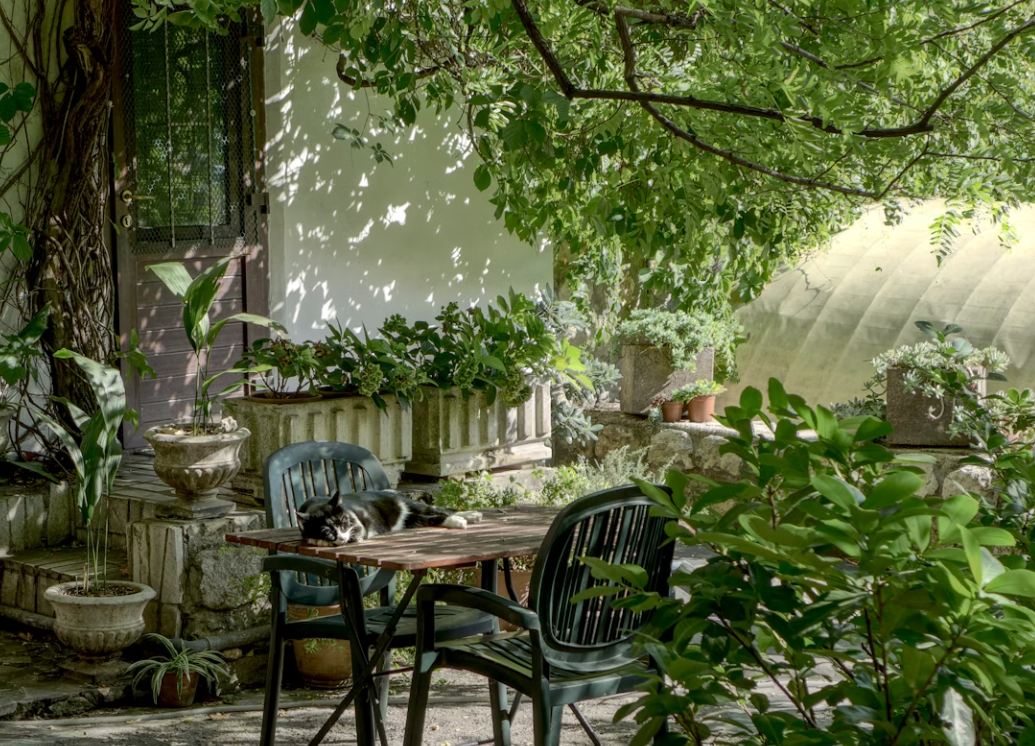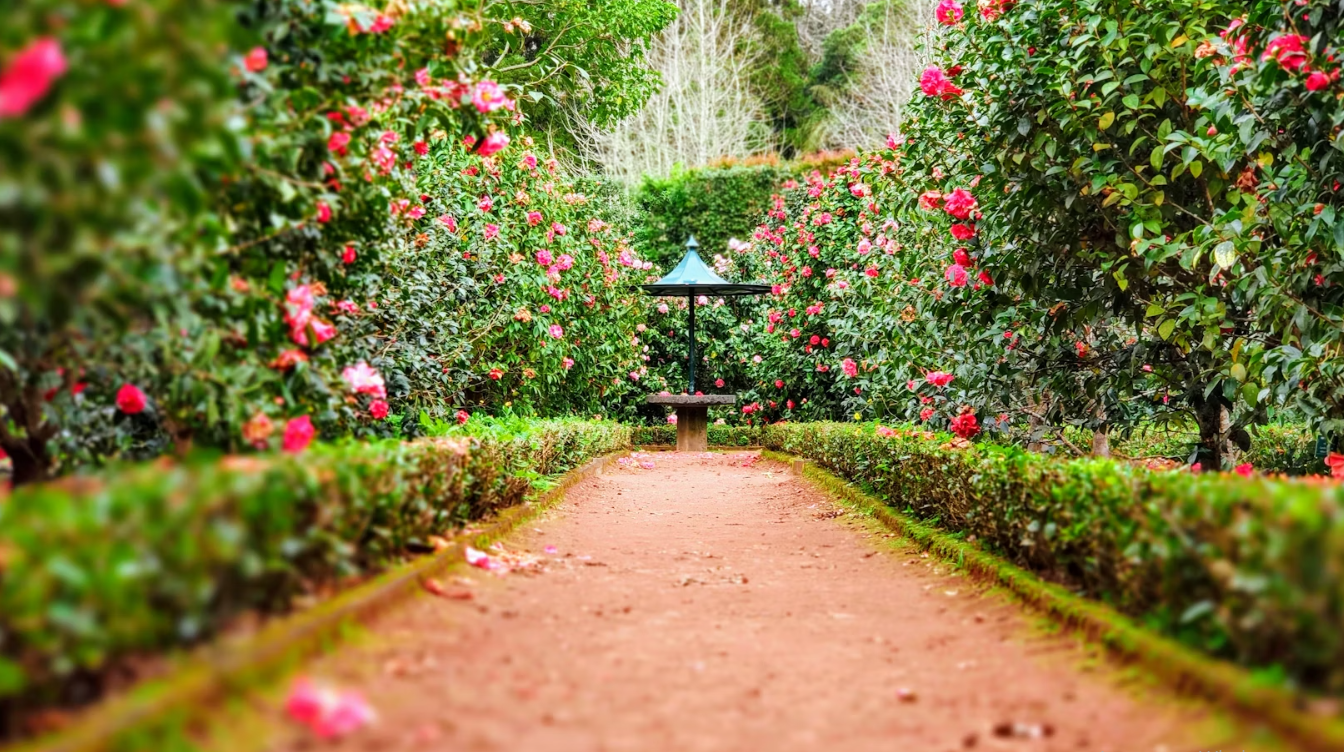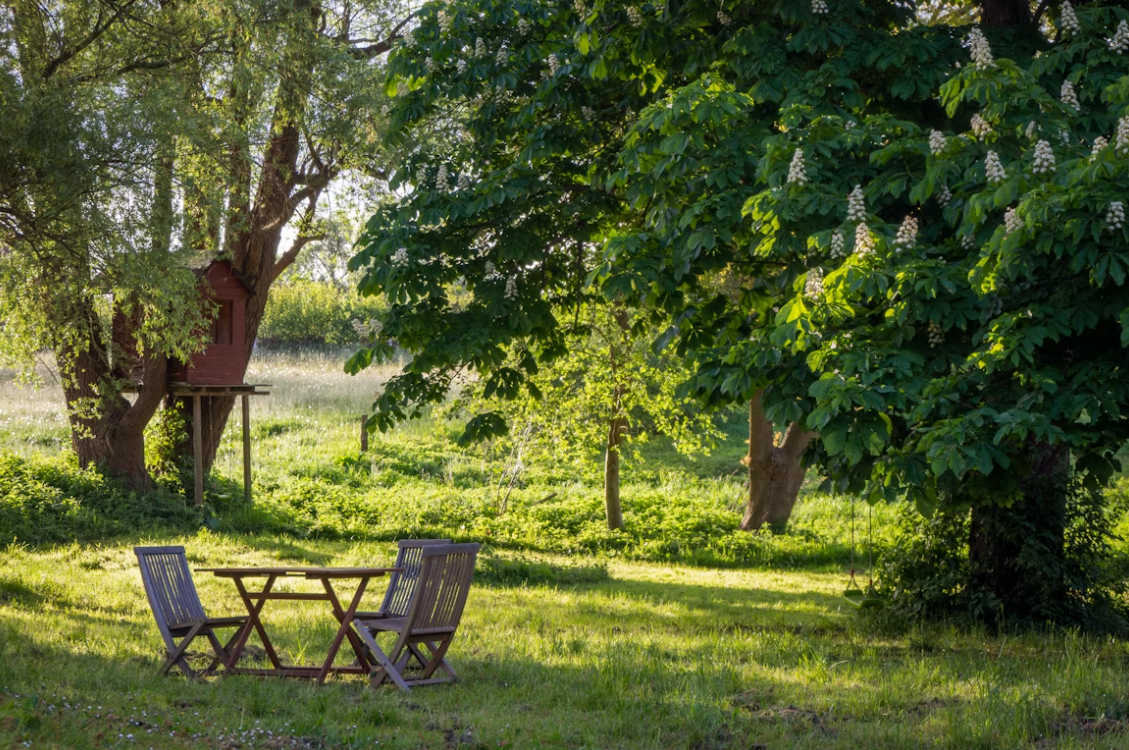Leaf Fable is a U.S.-based gardening and homesteading blog created for everyone who loves plants, soil, and outdoor living. We deliver practical guidance, creative garden design tips, and inspiring stories that help gardeners transform even the smallest patch of land into a thriving oasis.
Inspiration, knowledge, and guidance for every gardener in every season
About Us
Inspiration, knowledge, and guidance for every gardener in every season
Leaf Fable is more than just a blog about gardening—it is a place where stories, knowledge, and a love for nature come together. For us, a garden is not only about vegetables, flowers, or fruit trees; it is about a way of life that nurtures patience, creativity, and harmony with the rhythms of nature. We believe that every seed carries within it the possibility of change, growth, and beauty, both for the person planting it and for the world it inhabits.
On Leaf Fable, we share comprehensive insights on every aspect of gardening: from planting vegetables and herbs that provide fresh food for the table, to designing outdoor spaces filled with color and fragrance, to learning sustainable practices that protect the earth. Our content includes how-to guides, expert interviews, seasonal advice, DIY projects, and stories of everyday gardeners who have transformed their homes into personal sanctuaries of greenery.
What sets Leaf Fable apart is our commitment to making gardening accessible. Whether you’re a suburban homeowner with a large backyard, a city dweller with only a windowsill, or someone tending a community garden, our blog speaks directly to your unique needs. Gardening is not an exclusive hobby; it is a universal experience that ties people to the land, to their food, and to a slower and more mindful way of living.
Our Advantages
At Leaf Fable, our advantages set us apart as more than just a gardening blog. We provide readers with reliable, tested, and science-backed advice that works in real gardens, alongside a strong focus on eco-friendly, sustainable practices. Our growing community of garden lovers shares experiences and inspiration, while our creative design ideas help transform outdoor spaces into both productive and beautiful sanctuaries full of meaning.
Reliable and Tested Advice
At Leaf Fable, we believe experience is the foundation of knowledge. Every guide, article, or tip we share is born from real-world trials in different conditions, from suburban backyards in New England to balcony gardens in downtown Los Angeles. We consult horticulturists, collaborate with master gardeners, and continuously test ideas so that every piece of information is not just theoretical but practical and immediately actionable. Our goal is for our readers to spend less time searching for answers and more time watching their gardens thrive.
A Sustainable and Green Approach
We take environmental stewardship seriously. Our content emphasizes organic methods, natural pest repellents, composting strategies, and practices that protect pollinators and preserve biodiversity. Gardening should not exhaust nature’s resources—it should restore them. We encourage habits like mulching, water conservation, and choosing native plants that naturally support local ecosystems. Sustainable gardening isn’t just about growing food and flowers—it’s about leaving the earth healthier for the next generation.
A Growing Community of Gardeners
Gardening is a journey that becomes richer when shared. Leaf Fable provides a space where readers learn not only from our team but from each other. In our comment sections, newsletters, and community features, people exchange seeds, tips, and encouragement. Whether you are new and hesitant or advanced and confident, you will always find a sense of belonging. A shared harvest, a blooming flower, a solved soil issue—all these become moments of connection that keep our community thriving.
Unique Gardening Advantages: Sustainable Practices, Community Support, and Inspiring Garden Ideas
Types of Our Readers
Beginner Gardeners
Many of our readers are individuals who have just purchased their first home, rented their first apartment with a sunny window, or decided to test gardening for the very first time. They often feel overwhelmed by unfamiliar terms like “pH balance,” “pruning,” or “companion planting.” We create clear, step-by-step resources for them that simplify the process, from choosing soil to watering routines. Our guides ensure that new gardeners feel supported and never discouraged, turning uncertainty into confidence.
Experienced Gardeners and Growers
We also cater to seasoned gardeners who already understand the basics but are hungry for deeper knowledge. They want to experiment with heirloom varieties, vertical gardening techniques, or intensive organic crop production. These readers are curious, experimental, and thrive on detailed insights, nuanced research, and in-depth problem-solving. For them, we bring expert interviews, advanced soil science explorations, and innovative projects that push their skills further.
Urban Gardeners with Limited Space
A significant portion of our audience lives in urban and suburban areas, often without traditional yards. They may have balconies, patios, rooftops, or simply wide windowsills. For these readers, our content addresses the art of container gardening, compact vertical setups, and micro-herb farms. We prove that a lack of land is never the end of a gardener’s dream. Urban gardeners in our community grow tomatoes on balconies, potatoes in bags, and create miniature pollinator sanctuaries right in the city’s heart.
READ OUR BLOG

Blooming Flowers, Natural Defenders
Flowers may be celebrated for their beauty, but their deeper role in gardens is equally important. For centuries, flowers have functioned as natural defenders, attracting pollinators, confusing pests, and enriching the soil. When integrated into edible and ornamental spaces,[…]

Herbs Indoors All Year
Growing herbs indoors is one of the most accessible and rewarding ways to bridge the natural world with daily living. It allows fresh greenery year-round, makes mealtimes more flavorful, and transforms homes into spaces filled with calming fragrance. What[…]

Designing Gardens with Purpose
A garden is more than a patch of land filled with greenery. It is a reflection of the gardener’s intentions and values, an outward expression of inner life, and a stage where food, beauty, and rest all intertwine. Many gardens fail to satisfy because they lack direction: plants are chosen randomly, layouts evolve without thought,[…]

Thriving Tomatoes Made Simple
Tomatoes are the most beloved of garden crops, found in backyards, on porches, and even in urban containers across the country. They represent more than food: they symbolize the warmth of summer, the joy of sharing meals, and the pride of cultivating something with one’s own hands. Yet for many people,[…]
FAQ
Starting a garden doesn’t require prior knowledge, just patience and willingness to learn. Begin with simple plants that are hardy and forgiving, such as lettuce, radishes, herbs, or cherry tomatoes. Use quality soil and containers if you lack outdoor space. Focus on learning proper watering habits and observing your plants daily to understand their needs. Avoid overcomplicating things in the first season—instead, grow a small selection, celebrate little successes, and build confidence before expanding into a larger, more diverse garden next year.
It is tempting to buy every shiny tool in a store, but beginners truly need only a few essentials: a hand trowel for planting, garden gloves to protect your hands, pruning shears for trimming, and a basic watering can or hose with a spray nozzle. A sturdy shovel is useful for larger beds, while rakes help clear debris. As you gain experience, you may add specialized tools, but those basics can see you through most tasks successfully. Simplicity is best when getting started.
Maintaining an organic garden means embracing natural processes instead of quick synthetic solutions. Feed your soil with compost, leaf mulch, and organic fertilizers rather than harsh chemicals. Rotate crops annually to prevent depletion and disease buildup. Encourage pollinators and beneficial insects by planting flowers such as marigolds or dill. Use natural deterrents like neem oil spray or companion planting strategies to reduce pests. Healthy, diverse soil and careful observation will ultimately strengthen plants, reducing the need for chemical intervention entirely in most home gardens.
Pollinator-friendly flowers include natives that thrive specifically in your climate zones. In many U.S. regions, lavender, echinacea, milkweed, marigolds, asters, sunflowers, and clover are excellent choices. They attract bees, butterflies, hummingbirds, and other beneficial insects while enhancing beauty. Planting a variety that blooms across seasons ensures nectar is available spring through fall. Arranging patches of the same flower encourages pollinators to visit frequently, making your entire garden more productive while strengthening biodiversity in your surrounding community. Diversity and continuity matter most.
City gardens may feel limited, but creativity turns small corners into lush sanctuaries. Balcony containers, vertical wall planters, rooftop beds, or even sunny kitchen windows can sustain herbs and vegetables. Choose compact or dwarf varieties bred for containers. Use trellises to make plants grow upward rather than outward. Herbs, peppers, tomatoes, and leafy greens adapt especially well to confined areas. With good potting soil, reliable drainage, and consistent watering, even a single windowsill can become a thriving mini-garden. Space is less important than creative design.
Gardening can require patience, especially during cold winters or challenging summers. Motivation grows when you celebrate small milestones: the sprouting seed, the first bloom, or a ripe harvest. Document your garden with photos or journals to reflect on progress. Rotate what you grow to keep excitement alive and avoid boredom. Engage with gardening communities, whether online or in person, to share inspiration. Remember that gardening is not only about outcomes but also the joy of daily connection with nature, which should always remain the focus.
